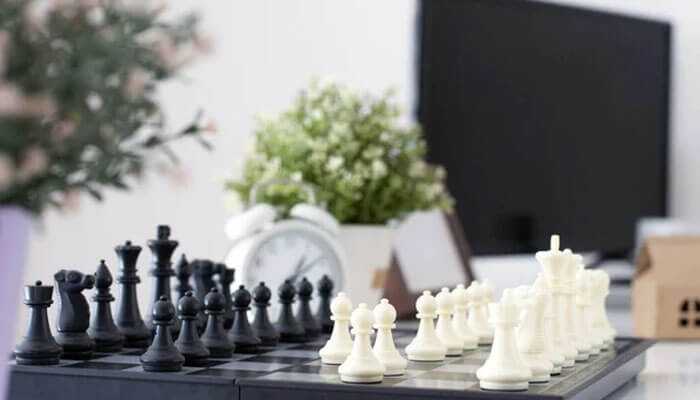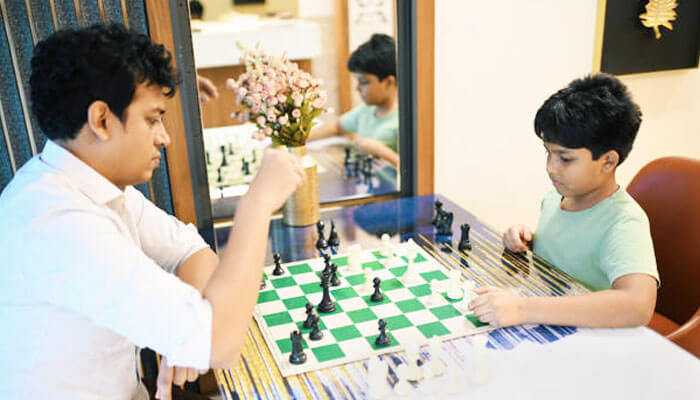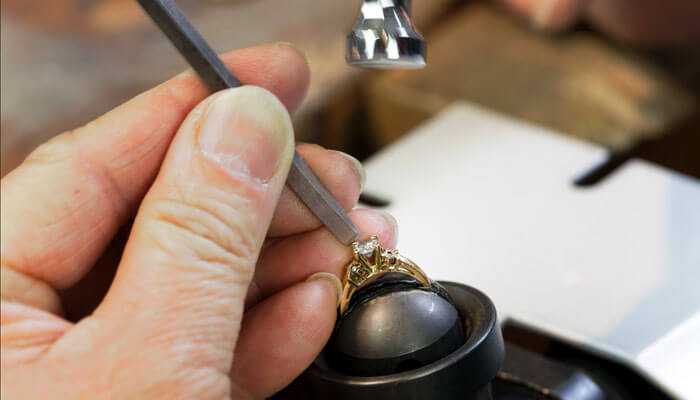Introduction
Every chess player and even someone who occasionally plays can sometimes be pulled by the fascination of pieces in the game. Royal Chess Mall, is a leading online store providing exotic wooden and metal chess sets as the use of superior quality pieces does make a lot of difference in the game played. Moved to the section dedicated to the best chess pieces, this article focuses on the pros and presents the reader with an equally ambivalent question: does chess make you smarter?
The Greatest Chess Pieces: An Exceptional Fusion of Design and Use
Regarding pieces used in the game of chess, there are various key aspects such as quality and design that define this game. Here are some of the best chess pieces that people can get, and why they are great.
1. Staunton Chess Pieces
This style is named after Howard Staunton, an English chess master of the 19th century Staunton patterns are now considered as the international standards for chess pieces. The above shirt is elegant and functional, thus becoming the official wear for tournament games across the world.
Key features:
-
- Classic, easily recognizable designs
- Well-balanced proportions
- Specific profiles of pieces for their instant recognition.
2. Luxury Chess Pieces
To get to know what the true art of creating chess pieces is, luxury sets are the perfect choice for many, as the quality and outlook are superior in them.
Key features:
-
- Competition concerning hand carving from rare woods or premium materials.
- Finish like gold or silver for the other parts of the steel or metal that is being used.
- Supporting elements of a substrate with optimal weight.
- To protect the chess board there are felt-lined bottoms.
3. Themed Chess Pieces
Themed chess sets provide an interesting design to conventional and overused designs to people intending to collect chess sets and also chess lovers.
Popular theme:
a. Medieval: Men in shiny, shining suits and armor carrying swords and shields and, women in flowy gowns resembling kings, queens, and knights of Castle ages.
b. Ancient civilizations: Although design may vary, groups of certain themes, which would be Teuton, Roman, Grecian, Egyptian, etc, are part of the set.
c. Animal Kingdom: Chunks depicted by different sorts of wildlife.
4. Modern Minimalist Pieces

Also crucial for those who prefer the styling of today’s furniture and accessories, chess sets in modern minimalist designs up the style ante.
Key features :
-
- Clean, geometric shapes
- Arbitrary representations of the traditional piece roles
- Substances used may include metallic materials which can be stainless steel glass or acrylic.
5. Travel Chess Sets
The travel chess sets are perfect for the chess player who is on the move and comes in small and sturdy air-tight containers.
Key features:
a. The type of pieces that will be used in this game will be magnets to ensure that they are not easily moved once placed.
b. There are folding boards designed to be cases to store the boards when they are not in use.
c. lightweight yet sturdy materials.
Choosing the Best Chess Pieces
Chess players should take the following things into account when choosing their pieces:
1. Material: Using fine and very heavy materials when producing the goods
2. Weight: Pieces that are properly weighted for stability while playing.
3. Size: Holds rattling relative to the chessboard and does not occupy an excess print area
4. Design: It has to look good while it serves its purpose.
5. Craftsmanship: Details of their work; these are often very accurate and the surfaces are well polished.
Does Chess Increase IQ?
There has always been a controversy as to whether chess is a good predictor of intelligence. As for the research concerning the effects of chess on students’ IQ, the results remain ambiguous, though, the majority of studies imply the occurrence of certain beneficial impacts on students’ cognitive skills.
Chess and cognitive enhancement have been the subject of several studies:
1. According to research done by Cuadra and colleagues in the Spanish Journal of Psychology, it was established that students who were taught chess displayed a marked enhancement in their cognitive performances, especially in the problem-solving domain.
2. A study in the New England Journal of Medicine reveals that elderly patients who play chess have a lower risk of having better memory as compared to other elderly patients who do not play chess.
3. La nova del Massimo scibile, a work published in the Polish Psychological Bulletin, presented research postulating that chess players have better concentration than non-players.
Cognitive Benefits of Chess
Chess can improve mental skills in several ways:
1. Strategic Thinking:
Chess involves strategies that were affected by planning many moves and possibilities of different moves.
2. Pattern Recognition:
The process of noting patterns on the chess board benefits the players in appreciating the future moves of an opponent, hence expanding the pattern recognition of an individual.
3. Spatial Reasoning:
Manipulating pieces on the chess board and thinking of different board layouts sharpens spatial awareness.
4. Critical Thinking:
Chess makes players think critically, and make a decision after they compare all the possibilities available to them.
5. Emotional Intelligence:
It helps in the management of stress arising from competition and the inability to learn from the losses improves the Emotional Quotient.
6. Attention to Detail:
Chess is very strategic and winning is often a result of seeing fine details and possible attacks.
The Holistic Benefits of Chess


Even though studies such as “Does chess increase IQ” are still being conducted, it is evident that chess stimulates the brain in various ways.
Still, playing chess has benefits that go beyond a sharp mind:
1. Social Interaction: Chess allows for interactions to be of substance.
2. Cultural Appreciation: Chess as a game that has been played all over the world for centuries may provide information about various cultures and times.
3. Personal Growth: The struggles and accomplishments that a person faces through the game of chess can lead to such aspects as hard work, fair play, and personal development.
4. Stress Relief: Chess is looked at by many players as a form of escape from normal life stressors and thus acts as a form of meditation.
Conclusion
Chess remains a classic example of the never-fading desire to put significant stock in strategic depth and aesthetic mastery. Further studies can still be made on chess and IQ, but demonstrations of how chess can be beneficial are evident: it improves solving problems, identifying patterns, and critical thinking skills. However, the cultural potential of chess lies in more than just sharpening brain functions; it is a learning arena in a broader sense. The chess set is central to this journey and each set is crafted with so much artwork and traces back history to its particular culture.
Regardless, of selecting a Staunton set or a fancy luxury one, each chess piece can be truly beneficial. When players interact with these delicately created products, they embark on a historical tradition that provokes the intellect and nourishes the soul. For anyone interested in getting into this realm of cognitive improvement and enhancing their appreciation of form and aesthetics – high-quality chess sets are but the perfect place where to begin.
Source: Cosmo Politian











